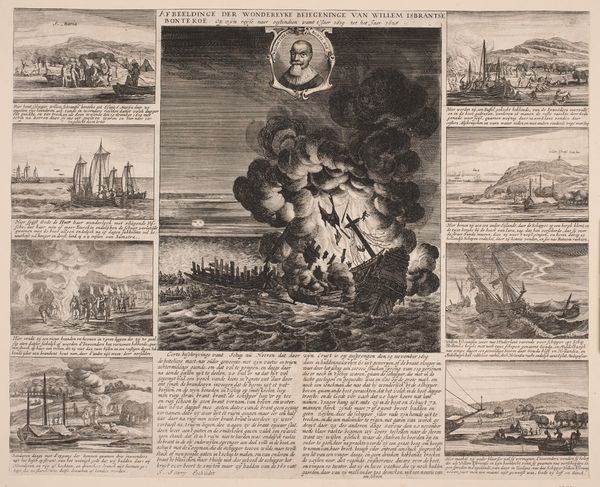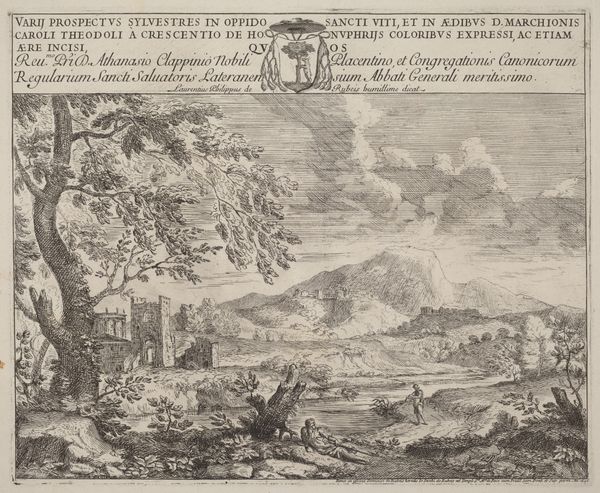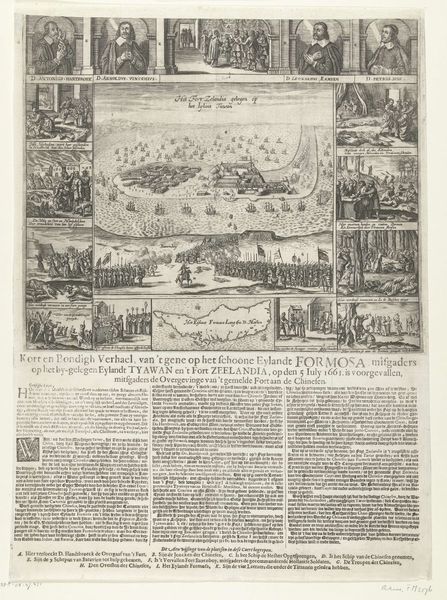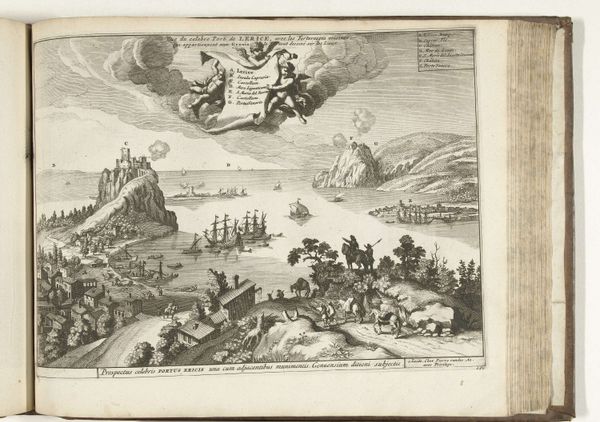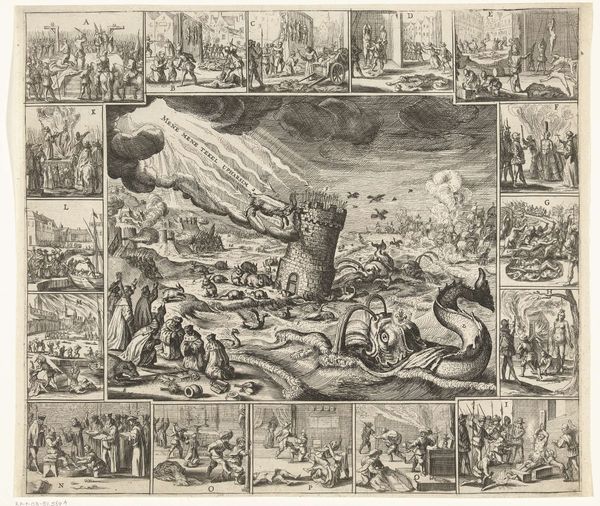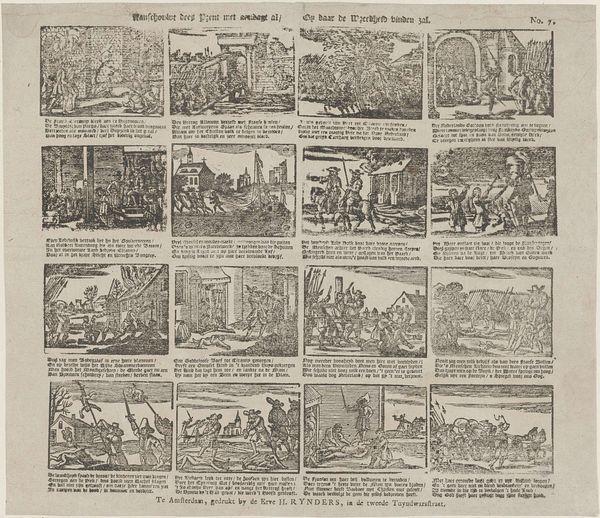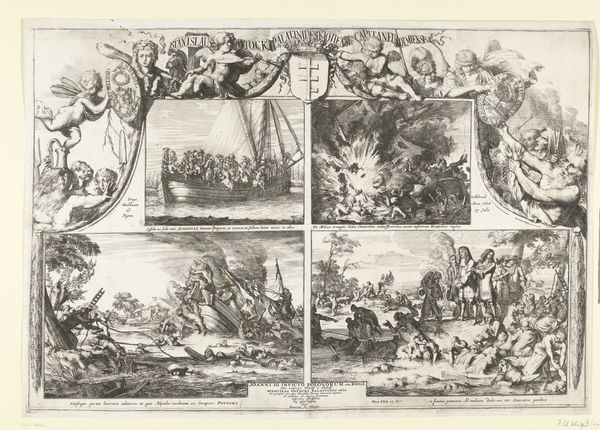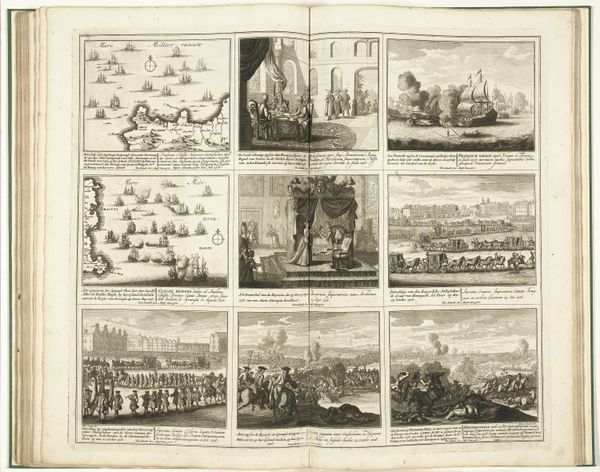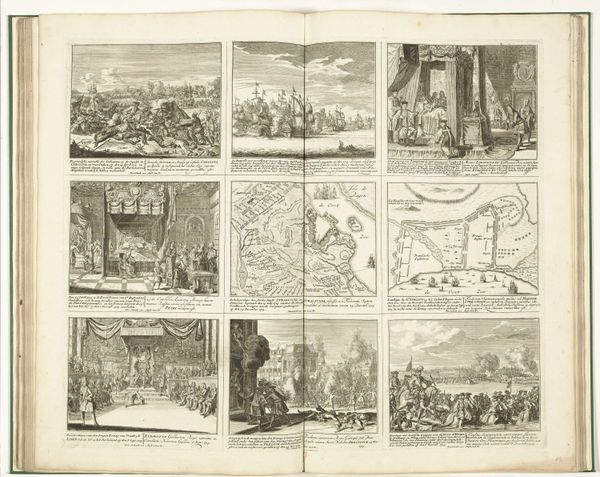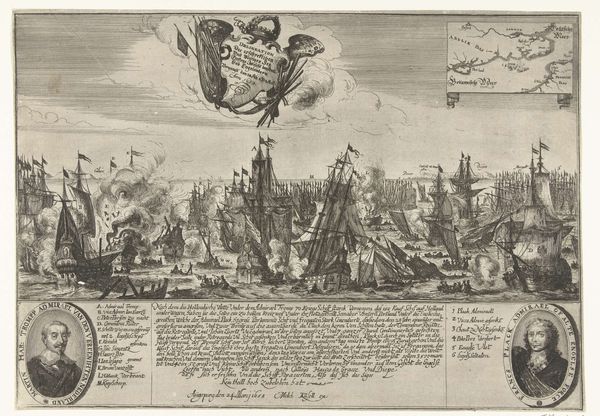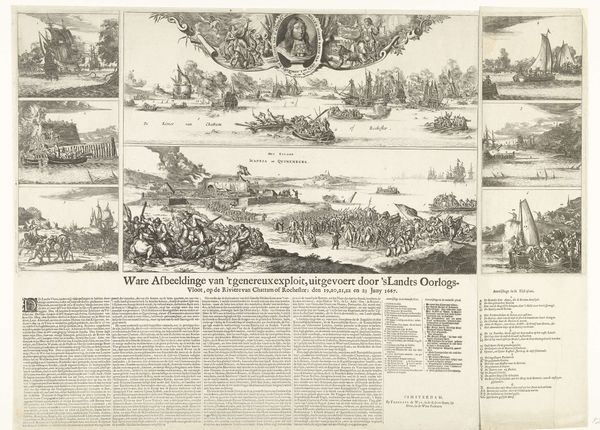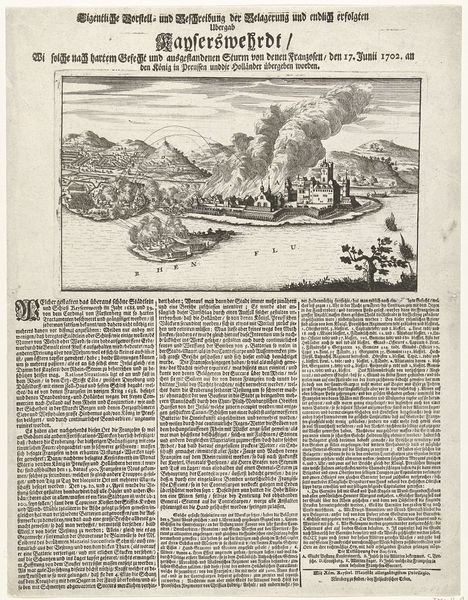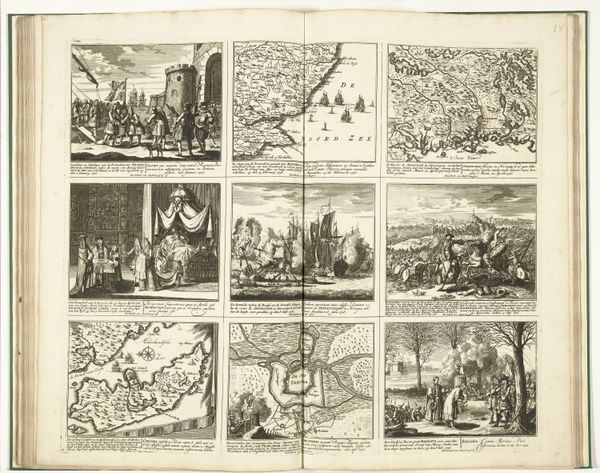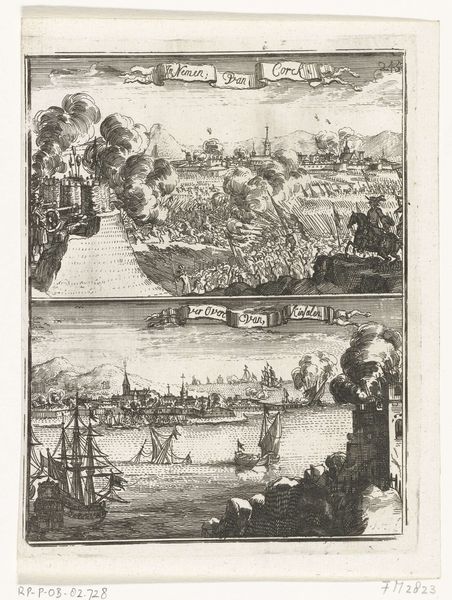
De reis van Willem Ysbrantsz. Bontekoe naar Oost-Indie, 1619-1625 1625 - 1629
0:00
0:00
salomonsavery
Rijksmuseum
print, engraving
#
aged paper
#
narrative-art
#
dutch-golden-age
# print
#
old engraving style
#
landscape
#
old-timey
#
history-painting
#
engraving
Dimensions: height 415 mm, width 514 mm
Copyright: Rijks Museum: Open Domain
Editor: This is "The Voyage of Willem Ysbrantsz. Bontekoe to the East Indies, 1619-1625," an engraving made between 1625 and 1629 by Salomon Savery. The dramatic scene of the burning ship at the center really jumps out. How do you interpret this work? Curator: I see a visual representation deeply entrenched in the socio-political landscape of the Dutch Golden Age. While seemingly a heroic maritime narrative, it's crucial to consider this engraving within the context of Dutch colonialism and its brutal impact on the East Indies. How does the portrayal of Bontekoe as a central, almost saintly figure, above the chaos of the burning ship, sit with you? Editor: I guess it makes him seem more important… separated from the event, maybe even innocent? Curator: Exactly. It subtly absolves him, and by extension, the Dutch East India Company, from the violence inherent in their pursuit of trade and expansion. This image becomes a tool for shaping public opinion, justifying colonial actions through a carefully constructed narrative of heroism and divine intervention. We should ask ourselves, whose story is being amplified here, and at whose expense? Editor: That’s a really interesting point. So, the seemingly straightforward historical depiction actually carries a much heavier ideological weight? Curator: Precisely. Art of this period often served to legitimize power structures. By analyzing the symbols, the composition, and the historical context, we can unpack the complex layers of meaning and expose the ways in which art contributed to shaping a particular worldview. Editor: I've definitely learned a lot about how crucial it is to question what a work seems to be saying on the surface! Curator: Indeed. It's about viewing art as an active participant in the ongoing dialogue of power and representation.
Comments
No comments
Be the first to comment and join the conversation on the ultimate creative platform.
